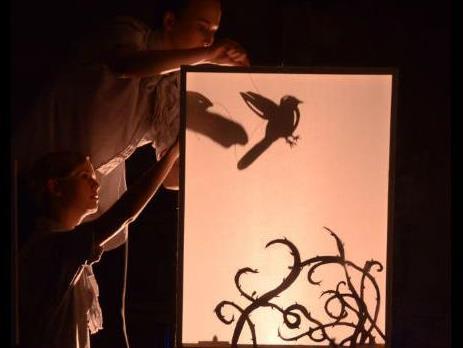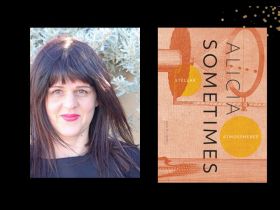We’re told to get out in the community, find new ways of working and getting funded. We’re also told how other major theatre companies are (or are not) exploiting the independent sector.
Comparing to an equivalent financial amount, the independent performing acts sector in Australia produced hundreds more works, sold over 26 times the tickets and completely blitzed the major theatre companies in community engagement, capacity building, and education up to the value or the same money as the major funded theatre companies
The independent sector taking advice from the majors is like clean energy companies taking advice from a company which makes a living from open cut mines.
Our little Anywhere Theatre Festival had 39 world premiers and 66,000 attendees in its second year. Independent Queensland company Shake & Stir had 180,000 people see their shows in 2012 without any government funding at all. That is close to twice the number of people who saw a Queensland Theatre Company main house show and two thirds the Melbourne Theatre Company 2012 attendance.
You heard me right – I think it is the major theatre companies who are in need of some advice from the independent sector.
The independent sector must realise that when their show is produced/presented/hosted under the umbrella of a major theatre company it is like once-religious non-believers filling out the Australian Census and ticking the religion they were born into… but no longer believe. All it does is make it easier to justify the pots of money going to the wrong place.
The majors have the advantage of a stronger lobbying voice and as I’m sure you know, they have people whose sole job is to ensure they get more funding and sponsorship. Yep, part of their funding goes to a role (or a few) that has a sole focus of finding more funding for their own organisation.
In ‘Why major theatre institutions should be left to die’, The Guardian’s Lyn Gardner asked how many pieces of work are not being done because of the funding going to the major theatre institutions. More importantly, how fewer artists are benefiting from funding major organisations instead of it going into the independent sector.
The answer to that is: a significant amount. You won’t find a figure in the Melbourne Theatre Company or Sydney Theatre Company 2012 Annual reports (or many at all, I’ve looked), however, hats off to Queensland Theatre Company for being incredibly transparent and including the following figures that I am taking as indicative of the majors:
- Of the 60.7 full time equivalent staff employed at Queensland Theatre Company ‘Actors/Artist’ make up 9.8 people. That’s 16%.
- There are more staff in Administration (13.1), production (18.9) and only slightly less in Marketing & Ticketing (8.1).
As organisations grow they need these administrative, marketing and production specialists, don’t they? It helps them reach economies of scale so that they become self sufficient, I would have thought. It appears the answer is no. Getting bigger seems to allow you to keep reducing the percentage of people in your organisation who are classified as artists.
I have nothing against the people in these roles: some of my best friends work in administration, marketing and production. But they shouldn’t make up the majority of people in a theatre company and they shouldn’t be the only ones with one-to- three-year contracts while the artists are happy for one or two six week contracts a year if they are lucky. Without the artists a theatre company has no purpose, so the artists should be the ones on one-to- three-year contracts and those other types of staff should be on short term contracts.
No one has given me a very good reason why the major companies continue to be given funding that could deliver more and better results if given to a range of smaller companies… other than maintaining the status quo.
‘But we won’t have a state theatre company?’ I hear the cry. No, you won’t. Instead you’ll have a stronger network of smaller independents creating a lot of different art across the state instead of predominantly focussing on a twenty kilometre radius around the one company’s headquarters under the artistic direction of one person. I fail to see the downside.
I’m sure stones can be thrown at what we do at Anywhere Theatre Festival. What we do isn’t perfect, but we’ll keep working on it until the artists are at the top of the financial food chain instead of the bottom. Or we won’t continue. We received triennial funding for the first time this year and we stated that after our three years are up we wouldn’t be going back to ask for operational funding again.
Are we nuts? No. After that time either this idea works and can stand on it’s own two feet and does so in a way where the artists and a vibrant culturally enriched Australia comes first, or it dies so that something else better can grow from the ashes.
On behalf of the independent sector I’d like to give that one piece of advice to the major theatre companies that maybe they should set themselves a similar goal. Unless they consider their fiefdoms more important of course.
Anywhere Theatre Festival
http://anywherefest.com/
7-8 May





